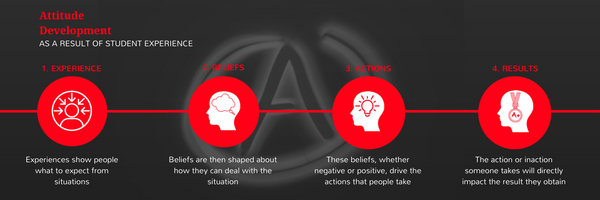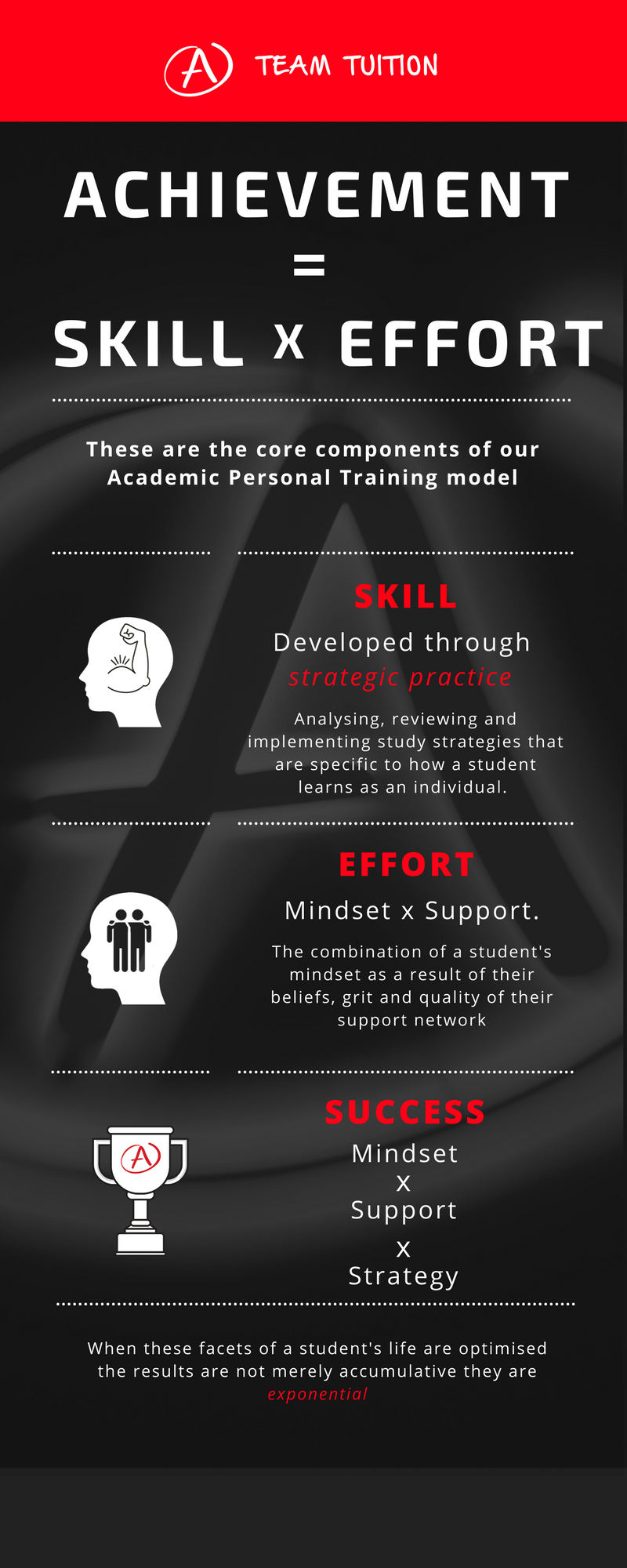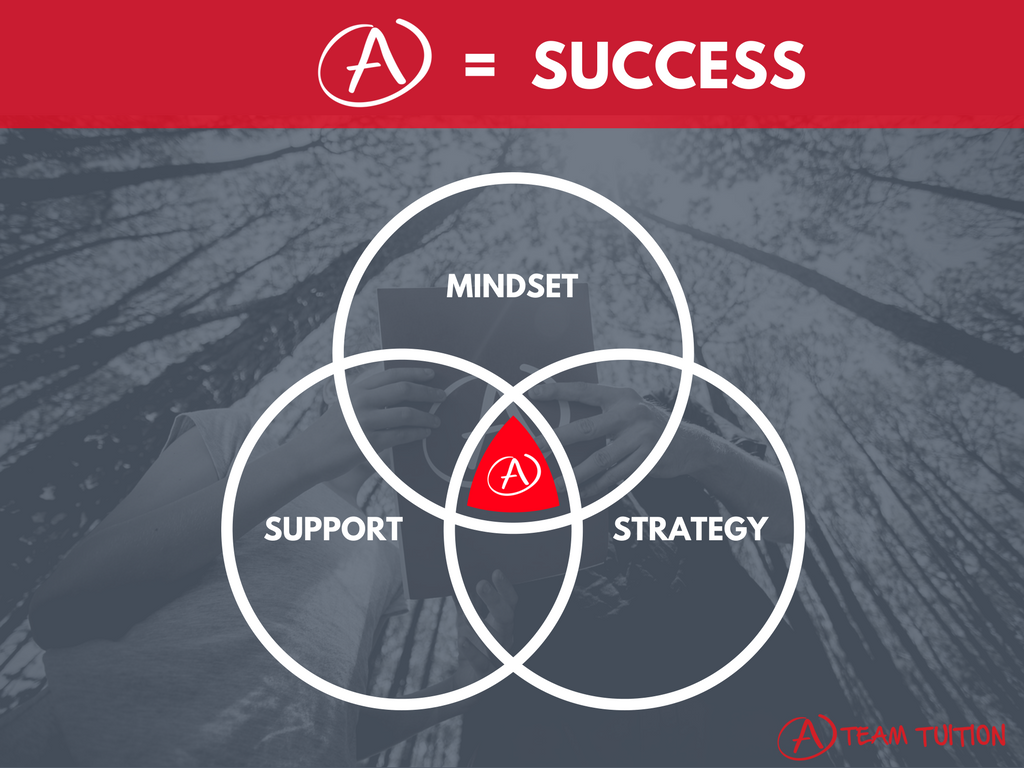Why Academic Personal Training Works: Benefits of Private Tutoring
People contact us mostly because they want a specific result: an improvement in their or their child’s grades.
Within the tutoring industry, there is an incredible debate about what constitutes “good tutoring” and how this specific result can be achieved. Tutoring companies often utilize their own programs and resources to create what they believe to be the quintessential tutoring program to help students improve their grades.
Often, these programs are composed of additional worksheets that align with the student’s current curriculum, and these worksheets have students repeating the same work that they are given in the classroom. Otherwise, programs are personalized and developed by the tutoring company to “enhance” previous content knowledge that the student may be lacking in.
This essentially reinforces to the child that they must simply do ‘x’ amount of more work than other children, which all too often creates the perception that it is because they are ‘slow’ or ‘dumb.’ Not only does this have potentially negative repercussions for the child, the parents’ biggest complaint to us in this, is that it often didn’t address the reason “WHY” the child is struggling to understand the concept in the first place.
This, unfortunately, is the public perception of tutoring today.
When we attempt to change results without asking why someone is acting or thinking in that manner, whatever change you may get, if any, is usually short-lived and misunderstood.
How is Academic Personal Training Different?
At A Team Tuition, we’ve taken a little bit of a different route. Asking “WHY?” is one of our favourite questions, and it’s the main reason that we have chosen to stray away from the ‘traditional’ tutoring standard, and to create something completely new, comprised of elements that actually allow for transformation.
Rather than creating a program that piles on extra work for students in the form of worksheets, or simply provides them with two hours of help with their study, we have created Academic Personal Training – a program that is unlike any other tutoring program.
Why combine two elements – academic and sports training – that seem so vastly different? And why not include extra resources and “build” upon the teaching that students receive in class?
The answer is simple – we do not believe that providing additional content necessarily results in significant academic improvement. All too often, tutoring companies can attempt to replace the role of teachers; however, it is important that tutoring does not replace teaching, but rather enhances it
This is why we have created Academic Personal Training. The title, albeit a bit strange at first, is intended to signify the manner in which we seek to train students not in their content and what they’re learning, but rather to perfect how they learn.
And it’s working. As of the end of 2017, 87% of our students have shifted from D/C grades, to achieving A’s and B’s. More importantly, we have encountered countless students who have developed their self-confidence, motivation, and attitude towards learning – measures that are equally, if not more, important to us as grades.
We complement this program with a behavioural change model that is used most commonly in organisational culture (Connors and Smith, 2011). This is because culture drives the way people think and act, and if the culture surrounding our students’ attitudes to study is positive, then they are going to take positive actions.
Our program focuses on creating constructive, meaningful experiences that then shape our students’ beliefs about their capabilities. These beliefs directly influence their actions, which create the results they are after.
We know that getting results actually begins with a student’s experiences. Breaking down success into the above elements directly impacts a student at this level.
We teach them by creating experiences in which they begin to understand that success is not innate, nor is talent, but occurs as a result of deliberate and strategic practice. This, in turn, gives each and every one of our students the belief that they are directly in control of their success.

It's Not What You Practice, But How You Practice
Strategic Practise
The first area, which fuels one’s skill level, is strategic practice.
Strategic practice involves being deliberate and focused about one’s learning, by configuring the best possible way an individual learns and understands content. It involves planning, reviewing, and implementing phases that are specifically focused on honing skills, increasing your strengths, and developing your weaknesses.
Within Academic Personal Training, developing strategic practices means looking at the specific student as a whole. It encompasses teaching the student vital skills such as: how to manage their time effectively, how to balance their school work whilst maintaining their own personal sense of self, hobbies, and interests, and how to personalise the manner in which they learn.
For instance, one of the major tools we use to personalise our approach lies in discovering and developing a student’s learning language. We believe that every student is different in the way they learn, and students react to different studying styles – be it through visual methods such as drawing diagrams or creating visual posters for revision, aural methods such as listening to YouTube videos or podcasts, or kinaesthetic methods such as physical hands-on activities, or demonstrations. Academic Personal Training helps guide our students towards adapting their learning to their preferred learning language; once this is established as a strength, our students are then taught how to strengthen their understanding and experience with their weaker learning languages (you can read more about this here).
As Academic Personal Trainers, we work specifically with every student to understand and develop this. Across a term, an Academic Personal Trainer will assist their student with realising their learning language, teach them how to personalise their learning, develop their time management skills, and help them configure their organisational strategies.
Our students are taught how to study in a way that is effective and efficient, rather than overbearing and done at the last minute; they practice their learning, and hone in on their abilities, rather than simply practicing content over and over again. Having that understanding and practice under their belt is what truly allows our students to then possess the ‘skills’ they need to succeed in school. This in turn, directly shapes the beliefs they have about their ability to do so.
Why do we do this?
We do this because we believe that every student deserves to understand themself and to know how to optimise their academic strategies. Too often, ‘skill’ translates subconsciously to ‘talent’ – however, skill is distinct from something that is naturally owned, and is rather something that is grown and developed over time.
We believe that helping a student configure their specific strategic practices will allow them to not only understand but also to appreciate themselves and the way in which they learn. This sets them up to successfully develop not only their academic skill, but any skill they choose to excel in.
After all, you can succeed at any skill if you learn how to develop and grow it in a strategic, purposeful way!
Having grown our students’ skill through helping them develop strategic practices, Academic Personal Training then focuses on improving our students’ effort levels through two main areas.
The first of these is our students’ mindset. You see, increasing one’s effort is a bit more complicated than improving one’s skill. While this may seem strange at first, think about it – how many students (and even people in general) do you know that have the skill to succeed, yet fail to put in the right effort for it?
When people believe they are capable of doing what it takes to achieve a goal and have a solid plan to implement in order to obtain this goal, they start to take action. These actions now become purposeful, driven by intent and facilitated by their support network (that’s us!).
For many talented students, this is the greatest roadblock to their academic success.
Often, this roadblock stems back to a terrible mindset, which is developed from a lack of intrinsic motivation. You see, when a student is motivated by an external factor – for instance, achieving an A so that they can get a reward – it poses an extreme risk. External motivation means that the outcome and reward is controlled by an external element; for example, achieving an A is not just down to the student’s effort, but is ultimately down to the teacher’s control and final say.
This means that if a student does not achieve to the right degree, two things can happen: either they fail and miss out on the reward, creating a really negative experience that often leaves them completely demotivated; or, they are given the reward anyway out of sympathy (or any other reason), and the process they went through is completely nullified. This is because they begin to expect a reward, rather than working for it.
 |
Either outcome is a proponent in creating a distinctly negative mindset. Many of our students upon first coming to us have a negative mindset towards their learning and educational capabilities, simply because they have been externally motivated and therefore externally controlled all their life.
Our aim is to have our students become intrinsically motivated – in essence, motivated simply by knowing that, with learning, they themselves will be improved. You can read about the benefits of intrinsic motivation, and some basic ways to begin fostering it here, in one of our Parenting blogs. The essential idea is that with intrinsic motivation, the process of learning is foregrounded, rather than any given product of it (for example, grades or rewards).
With this, the process of learning becomes the reward itself.
Before, I mentioned that IQ is the lowest ranking contributor to a student’s academic success. If the process of learning becomes the reward, students are far more likely to produce the highest-ranked contributing factor towards success:
Grit.
In psychological terms, grit is defined as the “perseverance and passion for long-term goals.” It is, essentially, the predecessor to talent, and it is the greatest factor affecting our personal mindset. Grit gives our students the ability to overcome challenges and setbacks by using the resources available to them, as well as developing their understanding of how to create resources where none are available. It is the personal drive within them to achieve, which then begins to fuel their efforts towards improving their grades.
Grit is the greatest part of developing a positive mindset – as soon as a student has an attitude of resilience, they are determined to give everything their absolute best, no matter what. As Academic Personal Trainers, we focus inherently on developing a student’s grit first and foremost, before even thinking about developing their content understanding.
Once a student has that ‘gritty’ attitude under their belt, and they are motivated intrinsically by the reward that the process of learning gives them, they are ready to begin construction on the final element of fostering positive and effective effort.
This element is not one that is touched on by any other tutoring company or program in the manner that Academic Personal Training does. However, it is perhaps one of the most important – if not the most important – factor in our students’ success:
Their Support
By “support”, we mean the other key members of our students’ team – those who are directly affecting and influencing them, both in their educational journey and in their personal life. While this may look different from student to student, the main members of a student’s support team are typically their parents, their teachers, and – in the case of Academic Personal Training – their tutor.
Now, it’s fairly easy to understand why it’s important to develop our students’ relationship to their teacher, or even to their tutor, as those are academic members who have a direct influence on their academic success. But you might find yourself asking, “Why is it important for me as a parent to be involved in my child’s academic journey – especially if I already am involved in growing and developing them as people outside of school?”
One study from Houtenville and Conway, however, found an absolutely jaw-dropping fact: Sufficient parental engagement (often in something as simple as encouraging them effectively) with a student’s learning led to academic outcomes that were equivalent to outcomes that only occurred if more than $1,000 was spent on each student individually by teachers and educational support systems.
That means that your support as a parent - be it in your encouragement, your help with their school work, your interaction with their teachers, or however you are involved in their learning - if it is effective and efficient, is worth more than spending $1,000 on school resources and individualised learning support!
Of course, as we mentioned, a parent’s job can be incredibly difficult, juggling their own personal lives, whilst supporting their children both as individuals and as learners. To help support our parents, Academic Personal Training includes a specific focus on assisting and guiding parents towards how to best support their children academically – thereby taking away the incredible stress of having to learn by themselves.
Academic Personal Training does this through the provision of our Parenting E-Book, which has been developed by a qualified development psychologist. We additionally have specific blogs that focus on helping parents develop their understanding of effective parental support for students, and our Academic Personal Trainers are trained specifically to connect our parents with their child’s progress and development and configure the best possible methods for parents to support their individual child as a student.
The other crucial component of a student’s support system is their teacher. As we mentioned earlier, we believe that tutoring should not replace classroom learning or the student’s teacher; rather, tutoring should supplement the education that the student is already receiving, allowing their current learning to become more effective and efficient.
It’s for this reason that our Academic Personal Trainers work tirelessly with our students to help develop effective classroom engagement and involvement strategies, to encourage our students to connect with their teachers personally and develop relationships. Teachers can be some of the most hard-working, sacrificial individuals on the planet, and if a student has their teacher on their side, they are near unstoppable!
More importantly, teaching our students how to work effectively with their teachers, their parents, or even their peers, allows them to develop skills that extend far beyond the simple realm of school. You’ll always have people that you interact or work with, and it is vital that you know not only how to work with them, but how to completely maximise the potential value that such a support system will add to your life!
Maximising Potential
This is, in essence, what we do overall as a company. Far beyond simply providing tutoring, A Team Tuition’s aim – our “WHY” in life – is maximizing potential. We believe that every student not only deserves the opportunity to be successful but most importantly, that they have the potential within them to be successful.
We believe that by teaching individuals the secrets to academic success, we are in turn teaching them how to maximize their potential in all areas of life.
After all, these areas are not simply restricted to one’s learning and education. Positive and effective strategies, mindsets, and support systems are vital in any area of life, and training yourself in these areas will result in success and achievement in any sector you choose. This counts for academics, sports, performing arts, or even business!
Our essential goal and drive in Academic Personal Training, therefore, is not simply to train students not only to learn properly but to excel in any area they choose. We don’t just create successful students, we create successful learners, who never cease to adapt and improve.
Ultimately, we simply want to transform as many lives as possible!


